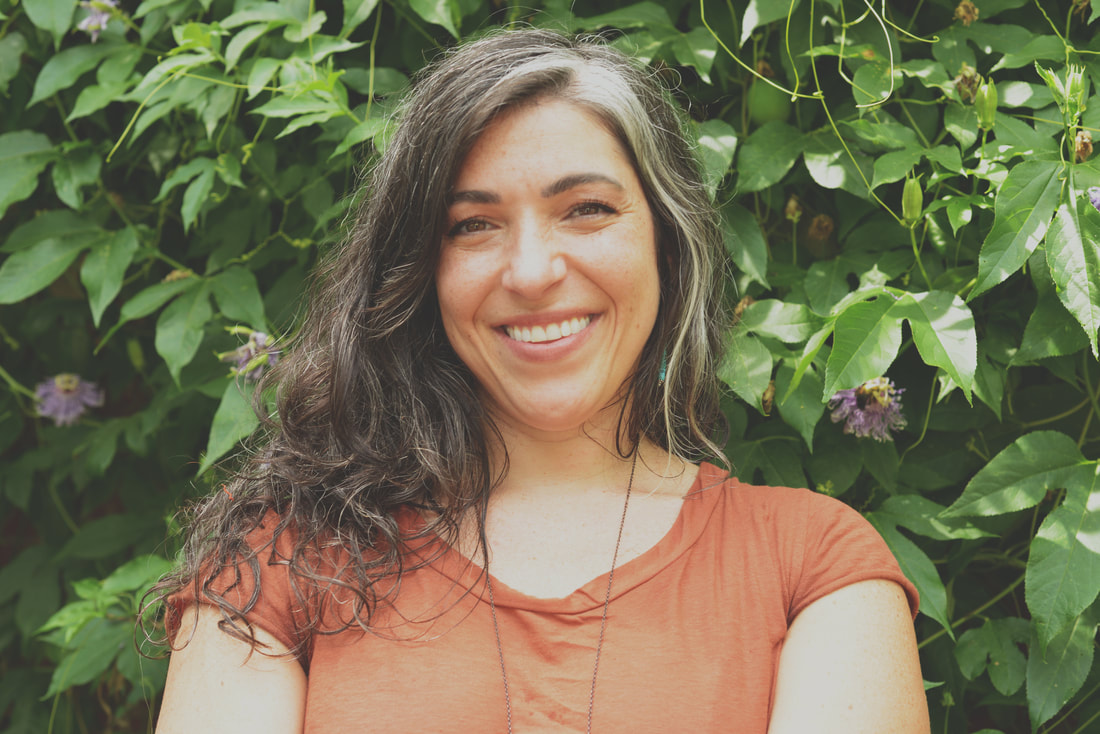|
It is my belief and experience that waking up and relating to the more-than-human world around us is an essential aspect of living well. I grew up in the suburbs of Philly. The biggest expanse of outdoors that I experienced as a child were the Jersey shore and the woods/creek behind my house- which I was encouraged by my parents not to enter because of the overgrowth of Poison Ivy along the fence line that separated our yard from the mostly wild area where the deer and other creatures lived. This was a stand that regularly brushed up against my dad, making its mark when he mowed or did yard-work, trying to keep the wild on the other side of the fence and away from his babies. I have strong and distinct memories of my dad’s arms slathered in the bright pink hue of cracking calamine lotion, soothing the itch of this very tenacious and communicative plant.
I later learned from incredible naturalist, Luke Learningdeer Cannon of Astounding Earth based in western NC, that some refer to this plant as Sister Ivy, and that she often grows at the edges of disturbed places- creating a green wall of protection if you will, so the world behind the green curtain may re-wild itself and perhaps remain less appealing for human development- a gatekeeper and protector of the wild places. A job well done I say, as I didn’t really begin to engage with the living world in the way I do today until much later in life. A memory stands out from undergrad specifically- when in college I was called by the plants to study in a world of wild grandeur- New Zealand. My mom's parents had died 8 years earlier and their passing lit a fire in my mom- she became a champion of travel. I think she sensed that seeing and experiencing the world outside of our backyard had deep and lasting value. She encouraged me to look into the study abroad program at my alma mater- Montclair State University. I was nervous about going far from home, family, friends, my boyfriend. Nervous because I think I could sense how much my life would change if I went on this trip. Nonetheless, my excitement, and the lure of adventure eclipsed my fear, and one day while hanging out in my friend’s bedroom I received a strong and clear message that felt like it came from the outside in- from the plants specifically. They called to me “go and study the plants in New Zealand”. I never had an experience like this before. It was distinct, clear and penetrating. I trusted the message and enrolled in the study abroad program at The University of Waikato. This was one of the more formative and memorable moments in my initiation as a healer who hears, speaks to and works with the plants to bring support and healing to the human world. I share this to bring in story about how I became who I am today, and to emphasize the value and importance of connecting to the more-than-human world on the healing path as we find our way back to living well in the world. Does this story bring up something for you? A memory of your own initiation perhaps? Or of a way that the more-than-human world has shown up to help heal and support you on your path in the world? I would love to hear your story. Please share if you feel moved to. If you'd like to support a local organization that works to connect humans, and more specifically, the children of the Charlotte metro area, with the great outdoors to help offset what some refer to as Nature Deficit Disorder- the idea that human beings, and especially children, are spending less time outdoors than they have in the past, and the belief that this change results in a wide range of behavioral, emotional and even spiritual problems click here to learn more.
0 Comments
|
AuthorDr. Mottola has a passion for service, social justice, anti-racism, health education and environmental stewardship and is on a mission to provide effective, empowering, accessible natural health education and care to the most diverse population possible. She believes that accessible healthcare is a basic human right that stands as a pillar of a healthy society and that the health of a society is reflected in the health of its people. She is passionate about placing health care back in the hands of the people. ArchivesCategories |


 RSS Feed
RSS Feed